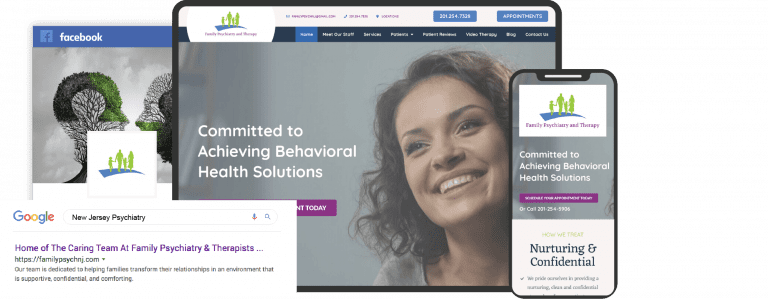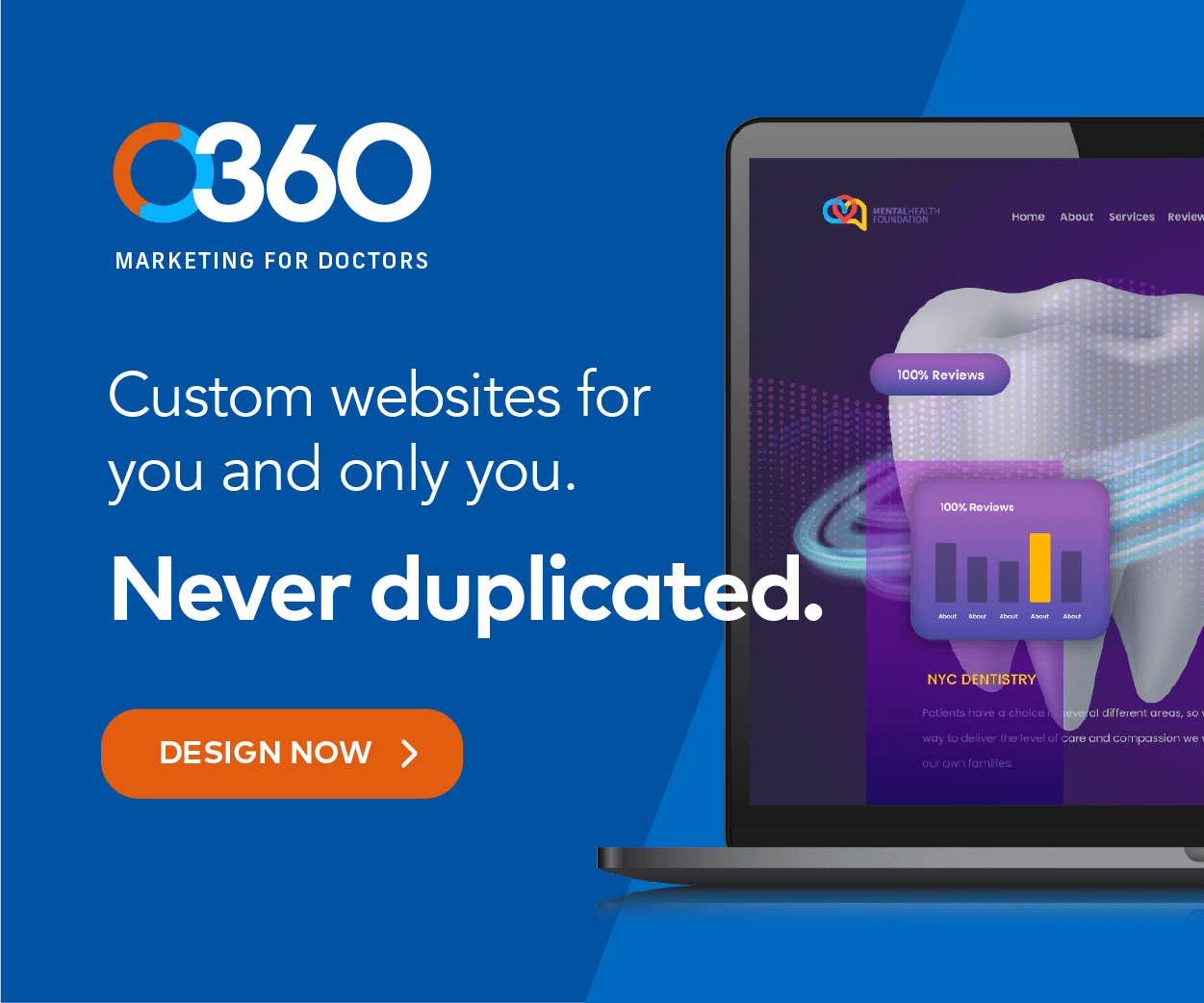Keyword Research for Healthcare Sites: How To Find What Your Patients Are Search For
Keyword research is the method of using online analytical tools to determine what search phrases people are using in search engines. This practice is the backbone of a successful search engine optimization or pay-per-click campaign, as keywords allow you to know what your patients are searching for and their intent. The goal of keyword research is to identify, evaluate, and select relevant keywords for which your website should be optimized and offer the text your pages need to use in linking campaigns. Keyword research also helps identify and select keywords to target pay-per-click advertisements.

What is a Keyword?
A keyword or phrase is a query term people enter into a search engine or website. A keyword can be a word or a series of words strung together, called keyword phrases. Keywords are found through research, searching through online data inquiries to track the traffic and popularity of a keyword or keyword phrase.
There are differences in the types of keywords used by people as well: broad keywords and long-tail keywords.
- Broad Keywords: Broad keywords are one to two-word terms people search for and are usually the root of the keyword. They’re considered the most popular way to bring in traffic as they are contained in broad categories but also bring in the most competition. Such words include “orthopedic surgeon,” “general dentist,” and “teeth whitening.” They have the disadvantage of a higher competition rate, but some search engines like Google implement a local search result filter for its users to help show more relevance to your practice.
- Long-Tail Keywords: Long-tail keywords are more specific search terms that contain three or more words. They usually contain an additional term or location, such as “dentist in New Orleans” or “root canal treatment in Pittsburgh, PA.” These additional terms describe the user’s internet, further defining the keyword search’s nature. These words have less traffic but pull on localized search results and have less competition for smaller practices.
Keywords also depend on the user’s intent and can allow you to refine your content and marketing strategy further when used in the correct context. For instance, some keywords intend to find new information, such as searching for a new provider or treatment option. Other keywords are honed in on evaluating information, such as searching for reviews, ratings, and the best options. In some cases, keywords can indicate decisions, such as patients searching for your practice specifically to decide on their healthcare.
Tools and Techniques for Effective Keyword Research
The core component of what makes keywords relevant is their context and how they are used. Researching keywords allows businesses to be as effective as possible in keeping up with the context of what people are searching for, and the best way to strategize and find keywords is through keyword research tools.
- Google AdWords: Google AdWords is considered the top tool for SEO specialists, as it revolves around keyword planning and research. This keyword planner is directly connected to Google’s user search habits and allows businesses to gain the most information about the relevance of their practice, website, and content. The planner offers average monthly searches, suggested bids, and competitive rates for specific keywords.
- AHREFS: Another popular keyword research tool, it is used across numerous industries for its ability to give businesses access to more than just keywords. It allows people to research content ideas, domain name comparisons, keyword generators, SERP checkers, and site explorers to analyze and further plan marketing campaigns.
- SEMrush: SEMrush is similar to AHREFS, offering additional features alongside keyword research. It provides information on organic search results, allowing people to find a competitor’s best keywords and rankings to gain insider information on the competition’s ad strategy, keywords, and budget.
- SERPS: This independent keyword research tool provides a full range of information to help keep active campaigns going, including a keyword research database, a Google location changer, and a keyword rank checker.

How To Select the Right Keywords For Your Campaign
Getting a keyword research campaign ready for your healthcare means identifying, evaluating, and selecting the relevant keywords for your audience. The best way to do that is to grasp what your audience wants, your medical niche, and how those aspects of your business are connected to your current practice. When you understand these goals, you can hone in on your keyword research and further your goals.
Pull From Datasets: Start by pulling a broad list of keywords using data from keyword tools like Google Keyword Planner, SEMrush, or Ahrefs. These tools offer insights into search volumes, trends, and how specific keywords perform within your healthcare niche.
Search For Relevance: Once you have your broad list, it’s crucial to sift through it for relevance. Discard keywords that don’t closely align with the services, treatments, or information your healthcare practice offers. This step involves a bit of critical thinking—place yourself in your patient’s shoes and consider whether the keyword would lead them to the kind of care or information they seek from you.
Organize Your Lists: After narrowing down your list to the most relevant keywords, organize them by themes or categories related to your practice. This could include categorizing by service lines, conditions treated, treatment types, or patient concerns. Such an organization makes planning content and SEO strategies easier around cohesive topic clusters, enhancing your website’s structure and user experience.
Analyze its Competitiveness: With your organized list, the next step is to evaluate each keyword’s competitiveness. Use keyword research tools to assess the difficulty of ranking for each term. Highly competitive keywords may require more resources to rank well, whereas less competitive keywords could offer quicker wins but potentially lower search volumes. Balancing between the two based on your practice’s capabilities and SEO strategy is key.
Estimate The Costs and ROI: For pay-per-click (PPC) campaigns, estimating your chosen keywords’ cost per click (CPC) is crucial. Some keyword research tools like Google Adwords can even give you CPC estimates. Weigh these costs against the potential return on investment (ROI). Consider factors such as the conversion rate of your website and the average patient value to your practice. For organic search strategies, consider the time and resources needed to rank for your chosen keywords and how that investment aligns with expected traffic increases and patient acquisition costs.
Some Advanced Keyword Research Strategies To Improve Your Campaign
Local SEO Research
For healthcare providers serving specific locales, local SEO is paramount. Incorporating location-based keywords into content strategies ensures visibility in local search queries, driving nearby patients to the provider’s website. This strategy is particularly beneficial for multi-location practices, requiring a nuanced approach to target each area effectively while maintaining a coherent brand presence across all locations.
Keyword Silos
Creating keyword silos involves structuring your website’s content in a way that groups related information together under specific themes or topics. This organization helps search engines and users navigate your site more efficiently, understanding the breadth and depth of your healthcare expertise. By aligning each silo with a core service or treatment area, you ensure that your site covers a broad spectrum of patient inquiries, all while maintaining a clear and intuitive structure.
LSI Keywords
Latent Semantic Indexing (LSI) keywords are terms and phrases related to your main keywords. They help search engines grasp the context of your content, enhancing its relevance to specific search queries. Incorporating LSI keywords throughout your website content, including in headings and image alt text, can improve your SEO by aligning your content more closely with how users search for healthcare information and services.
Semantic Analysis
Semantic analysis goes beyond keyword matching, focusing on understanding the searcher’s intent and the contextual meaning of their queries. By conducting a semantic analysis of your target keywords, you can better hone your content to answer the underlying questions your potential patients might have. This involves using the right keywords and providing comprehensive information that addresses broader topics related to those keywords.
Revamp Content Gaps
Identifying and filling content gaps is crucial for maintaining a competitive edge. Analyze your website and your competitor’s pages to pinpoint what healthcare topics they cover that you don’t, and vice versa. Use tools like Ahrefs’ Content Gap Analysis to uncover these gaps. By developing content that fills these gaps, you cater to a wider audience and establish your site as a comprehensive resource for healthcare information, improving your rankings and visibility.
Work With Optimized360 For Your SEO Traffic Strategy Today!
Keyword research is a dynamic, evolving process, and by adopting these advanced keyword research tactics, healthcare providers and marketers can significantly enhance their online presence, attract more targeted traffic, and provide better support and information to their patients. For those stuck with a stagnant campaign, our team of SEO experts at Optimized360 can help provide insights into your campaign to help your practice succeed. Our expertise in healthcare digital marketing ensures your website attracts more traffic and connects meaningfully with patients, guiding them from search to service. For more information, contact our team today to learn more about your options.













